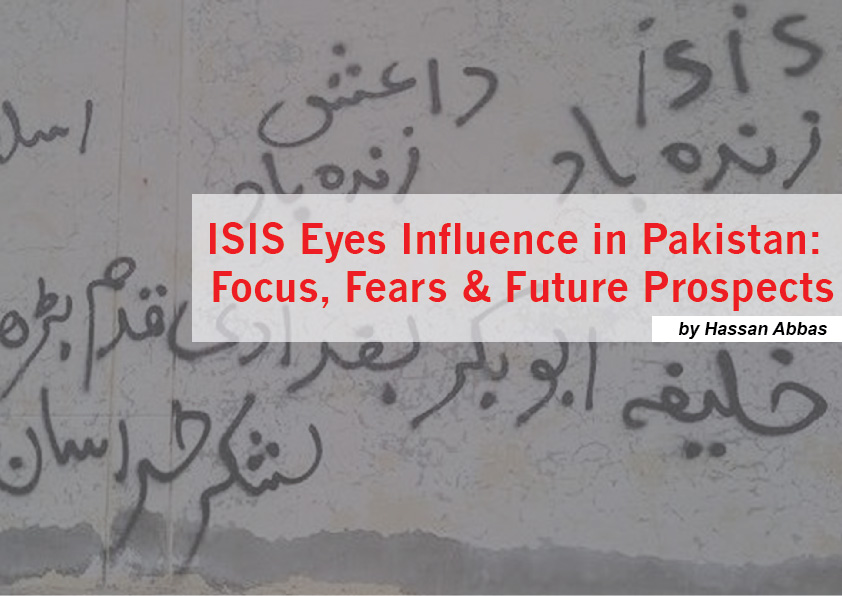Policy Brief
ISIS Eyes Influence in Pakistan – Focus, Fears & Future Prospects
by: Hassan Abbas
Date: December 23, 2014
The rapidly expanding militant force in Iraq and Syria known globally by its Arabic acronym Daesh (al-Dawla al-Islamiya fi al-Iraq wa al-Sham) or in English ISIS (Islamic State of Iraq and Syria) is neither a myth nor does it appear to be a fleeting phenomenon. Tragically, it is real and has historical roots. The militant group has succeeded in rapidly taking control of a large tract of territory in Iraq, as well as erasing parts of the border between Iraq and Syria, conceptually establishing its writ in a way that is more than a sanctuary but insufficient to place it in the category of a state. At best it is a fluid state at the moment – with its foundations soaking in blood and its architecture being constructed on the pillars of brutality, fear, oppression and distortion of Islamic principles. Its genesis in the contemporary context is not organic in nature but arguably a product of mistaken and misdirected global policies. History too has played its hand but the recent turmoil in Middle East, sectarian proxy wars, and confused handling of the Arab spring, have all influenced this state of affairs. The Al-Qaeda narrative has also contributed to this rise as an effort to establish an ‘Islamic State’ with military objectives and expansionist ideals. Abu Bakr al-Baghdadi, the self appointed ‘caliph’ of the ISIS lacks any religious credentials and doesn’t even have support of major extremist Muslim groups around the world – but he has what none of them have – direct control of territory where around 8 million Muslims live. The five-year ISIS expansionist program is evident part of its ‘Khurasan’ province.

